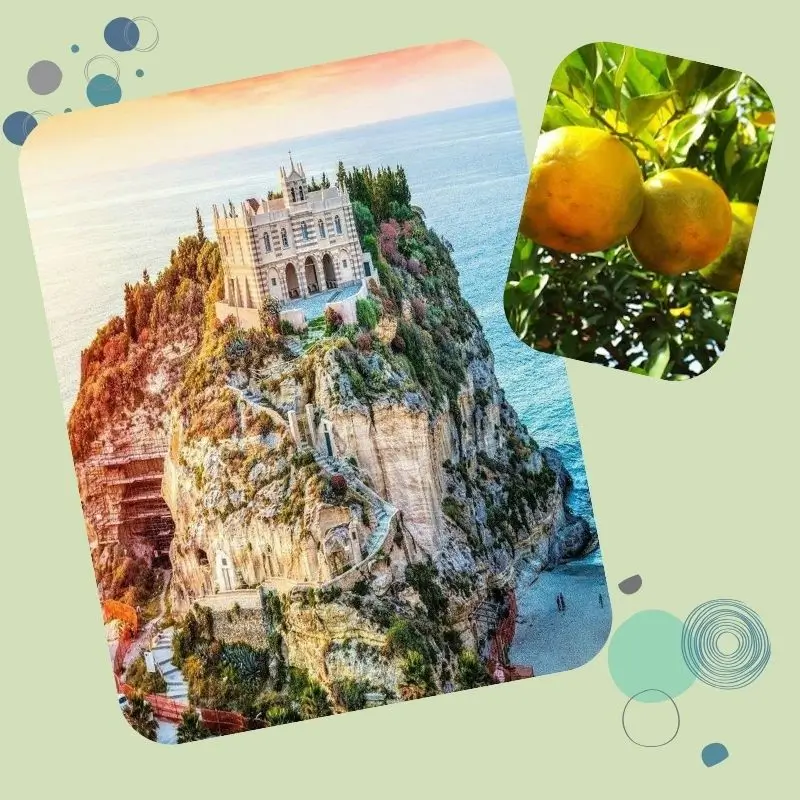Close your eyes and imagine the first sip of Earl Grey tea, the opening notes of your favorite cologne, or the zest that elevates a Michelin-starred dessert. What you’re experiencing isn’t just flavor or fragrance—it’s the liquid treasure of Calabria, a citrus fruit so rare and valuable that a single liter of its essence can cost more than vintage champagne.
This is bergamot, and its story begins in the windswept groves of southern Italy, where the Mediterranean’s most prized citrus has been cultivated for over 300 years.
You have likely smelled its fruits, but you may never have heard of the place where they are produced. Reggio Calabria is the capital of the region that shares its name and is the largest bergamot production center in the world. Located south of Reggio Calabria, Melito di Porto Salvo is another important town for the production of this citrus fruit. Its proximity to the sea and favorable climate contribute to its high yield.
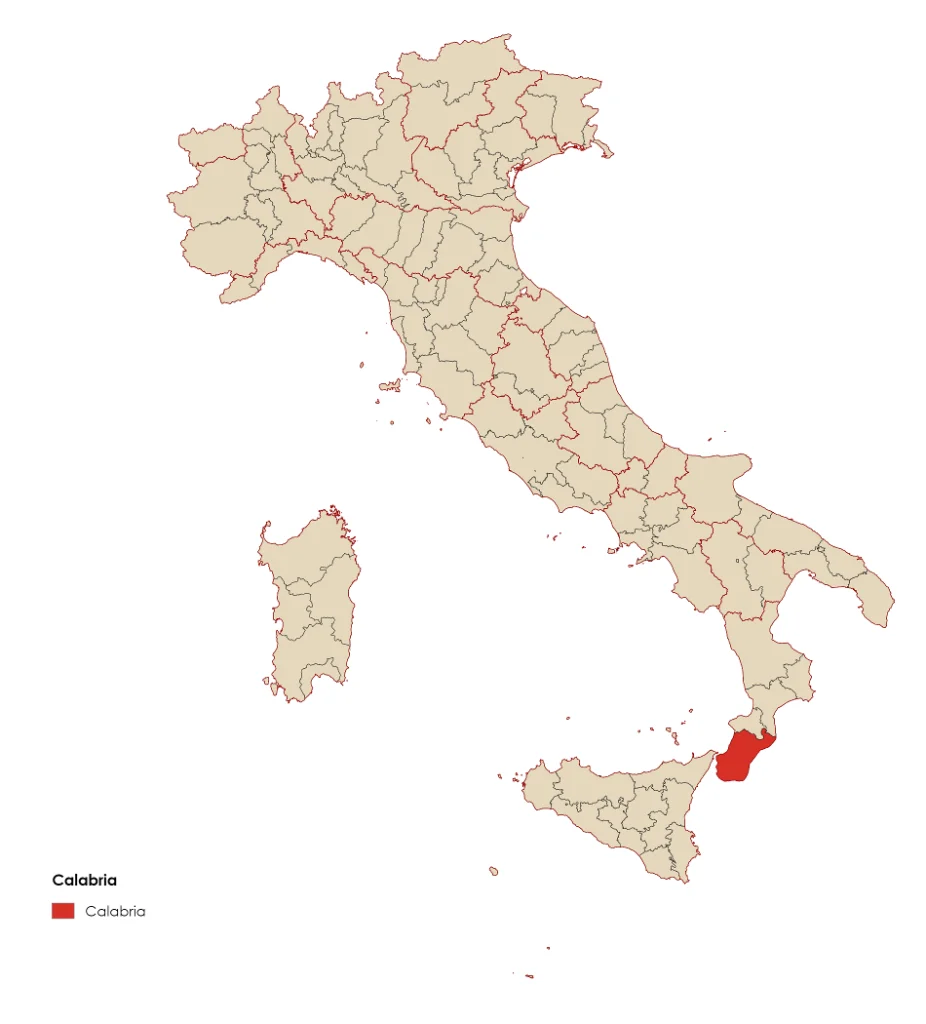
Calabria is not one of Italy’s most visited regions; it lies at the southern tip of the famous boot and is more recognized for the local mafia than for the green gold it treasures. In its lands, which once belonged to Magna Graecia (on calm days, it almost feels like you could reach out and touch the large Mediterranean island of Sicily), one of the most essential citrus fruits in the global perfume industry is cultivated.
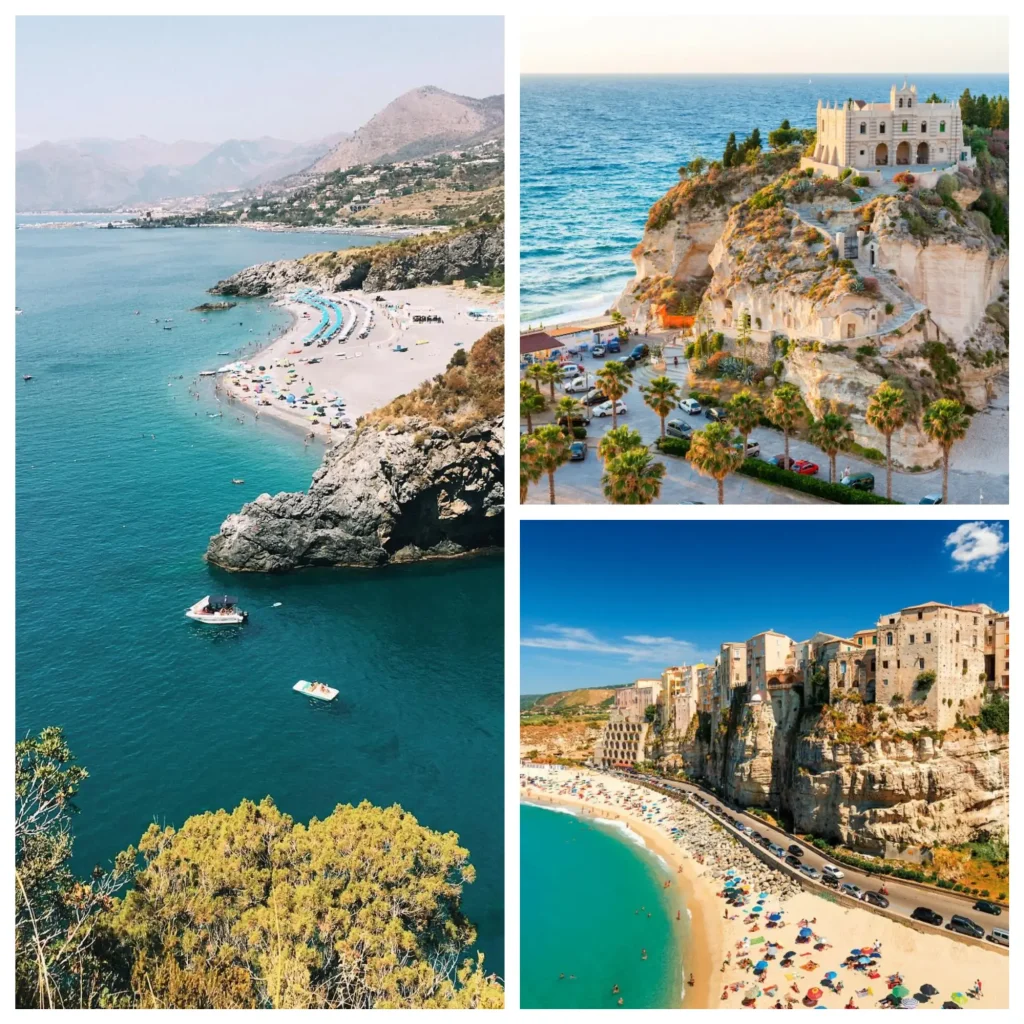
The Perfect Storm: How Geography Created a Citrus Miracle
Bergamot’s story begins with an accident of nature—or perhaps, as locals insist, divine intervention. In the 1600s, somewhere along Calabria’s windswept coast, a spontaneous hybridization occurred between a bitter orange and a lemon tree, creating what botanists now classify as Citrus bergamia.
The Calabrian Microclimate: A Natural Laboratory
What makes this narrow coastal strip irreplaceable? Science points to a unique convergence of factors:
- Dual sea influence: The Ionian and Tyrrhenian seas create a microclimate with consistent humidity levels (65-75%)
- Volcanic soil composition: Rich in potassium and magnesium from ancient Etna eruptions
- The Strait of Messina winds: Constant air circulation prevents fungal diseases while concentrating essential oils
- Temperature stability: Winter lows rarely drop below 5°C (41°F), while summers peak at 32°C (90°F)
- Rainfall precision: 800-1000mm annually, distributed perfectly for citrus cultivation
Local farmers, whose families have tended these groves for generations, have a different explanation: “The Greek gods blessed this land,” says Antonio Versace, whose family has cultivated bergamot since 1847. “Demeter herself walks through our groves.”
What Is Calabrian Bergamot?
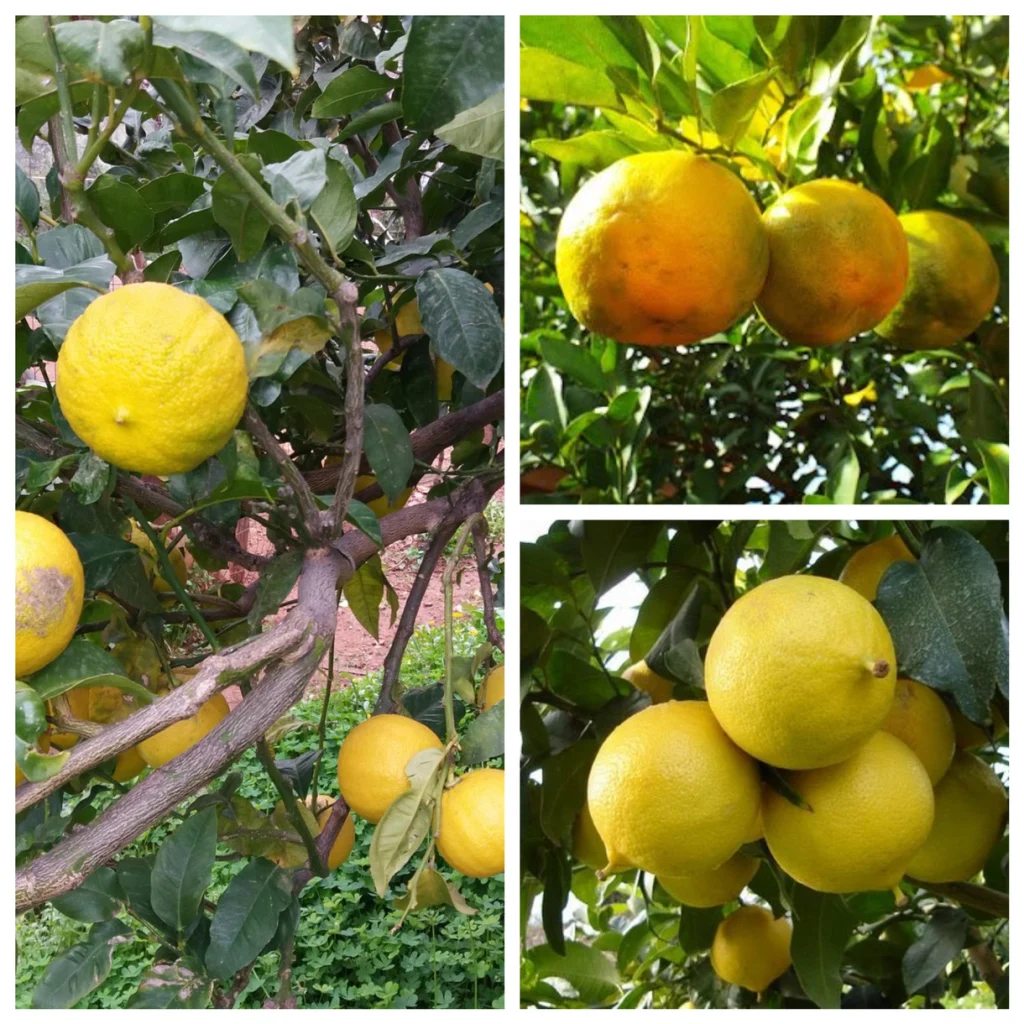
Imagine a fruit so unique that it exists nowhere else on Earth. Bergamot (Citrus bergamia) isn’t your ordinary citrus—it’s a botanical paradox that grows exclusively along Calabria’s Ionian coast, where ancient Greek settlers first noticed something extraordinary about this hybrid between bitter orange and lemon.
Unlike oranges or lemons, bergamot’s magic isn’t in its flesh but in its skin. The fruit’s bumpy, yellow-green peel contains microscopic oil glands that, when pressed, release one of nature’s most complex fragrances—a symphony of floral, spicy, and citrus notes that perfumers have coveted for centuries.
The Numbers Tell the Story:
- 95% of global bergamot production happens within a 35-mile coastal strip of Calabria
- One tree produces 200-400 fruits annually
- It takes 200 pounds of fruit to create just 2 pounds of essential oil
- A single bottle of pure bergamot essence (500ml) sells for €150-300
This isn’t just agriculture—it’s alchemy. The same oils that transform your morning Earl Grey into a sophisticated ritual also form the backbone of iconic fragrances from Chanel to Tom Ford, making bergamot one of the most valuable crops per square meter in Europe.
The Global Empire Built on Calabrian Bergamot
Every year, executives from London’s tea houses, Paris’s perfume laboratories, and New York’s cosmetic giants make pilgrimages to Reggio Calabria. They come not for vacation, but for business—to secure contracts for one of the world’s most coveted raw materials.
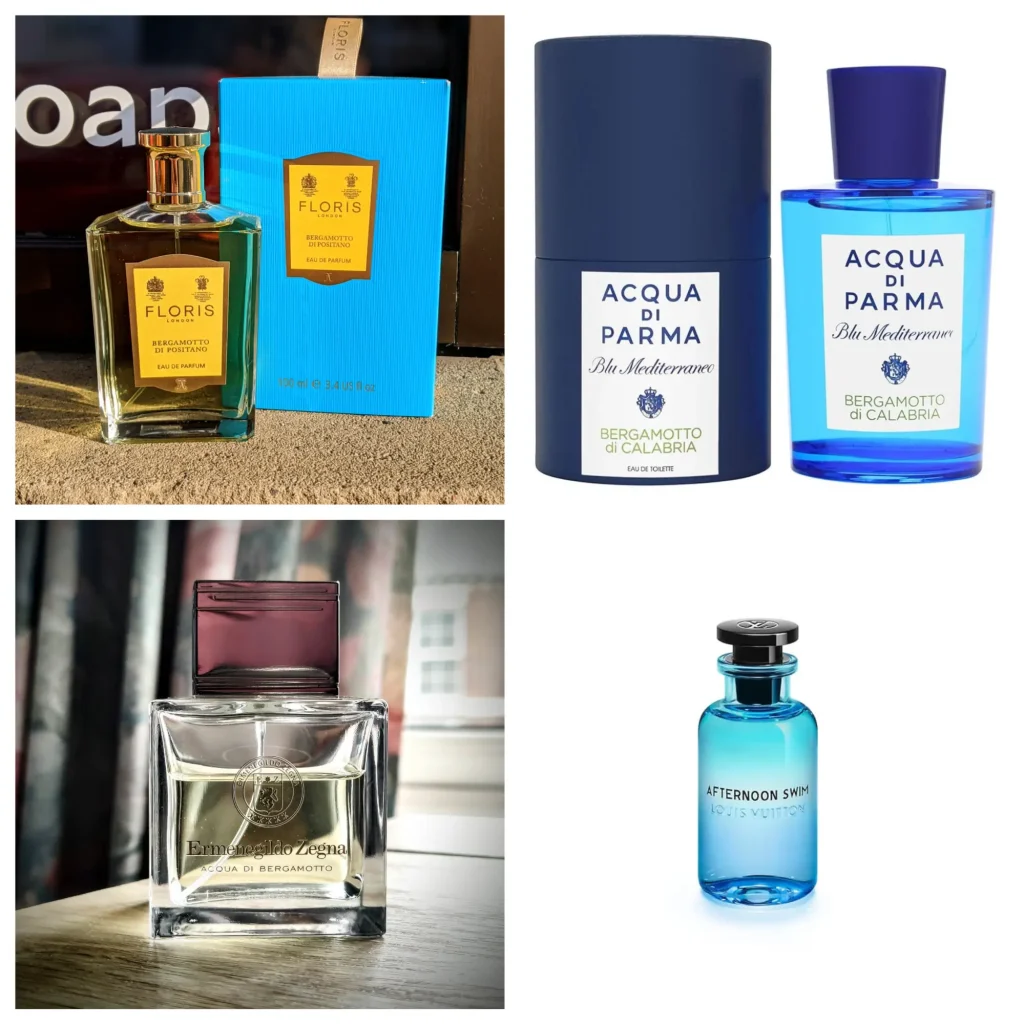
The Fragrance Industry: Bergamot’s Billion-Dollar Kingdom
In the world of high-end perfumery, bergamot reigns supreme as the ultimate “top note”—the first scent you experience when you spray a fragrance. Its complex profile of citrus, floral, and subtle spice makes it irreplaceable in luxury fragrances:
Iconic Bergamot Fragrances:
- Chanel No. 5: Contains bergamot as a key opening note
- Tom Ford Neroli Portofino: Features Calabrian bergamot prominently
- Acqua di Parma Colonia: Built around bergamot since 1916
- Hermès Eau d’Orange Verte: Showcases bergamot’s versatility
- Creed Aventus: Uses bergamot to create its signature opening
Industry insight: Premium perfume houses pay 30-40% more for certified Calabrian bergamot over synthetic alternatives.
The Tea Revolution: How Bergamot Created Earl Grey
The story begins in the 1830s when Charles Grey, the 2nd Earl Grey, received a diplomatic gift of bergamot-flavored tea from China. The blend became so popular among London’s elite that it sparked a global phenomenon:
Global Earl Grey tea market valued at $685.4 million in 2024, expected to reach $1.12 billion by 2033 Alternative estimates show $2.4 billion in 2023, projected to reach $4.5 billion by 2030 Market volume: 7.20 million tons in 2023, expected to reach 9.80 million tons by 2032 Growth rate: 5.7-7.5% CAGR depending on market analysis
Today, from Fortnum & Mason in London to specialty tea shops in Tokyo, authentic Earl Grey depends on Calabrian bergamot essence—making this small Italian region essential to a billion-dollar global industry.
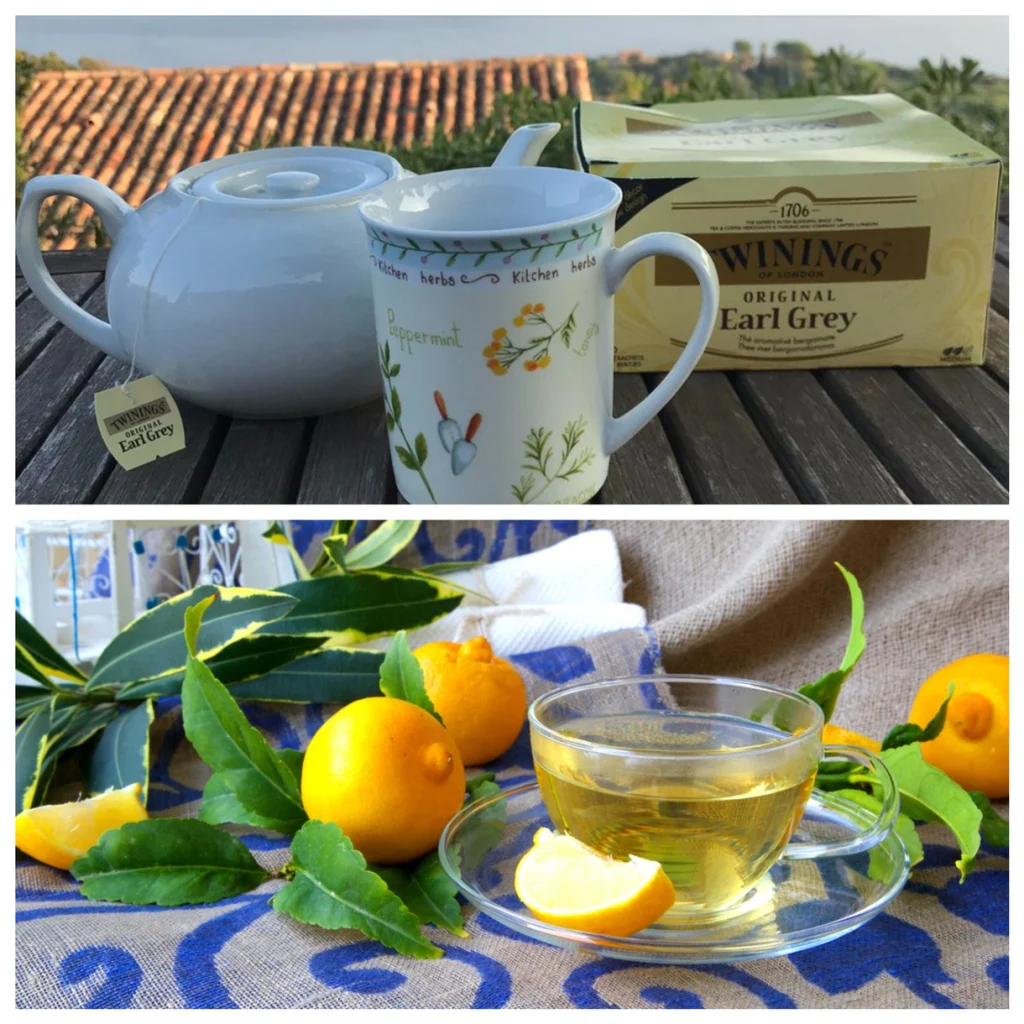
Cosmetics & Wellness: The Hidden Giant
Beyond fragrance and flavor, bergamot has quietly become a powerhouse in the global wellness industry:
Skincare Applications:
- Anti-acne treatments (natural antiseptic properties)
- Anti-aging serums (antioxidant compounds)
- Aromatherapy products (stress reduction)
- Natural deodorants (antibacterial properties)
Market Data:
- Bergamot essential oil market value: $94.5 million in 2023, projected to reach $160.3 million by 2032 (DataIntelo Research, 2024)
- Expected growth rate: 6.3% CAGR from 2024 to 2032
- Alternative estimates show higher values: $11.23 billion in 2023, expected to reach $23.40 billion by 2031 with 9.6% CAGR (Verified Market Reports, 2024)
The Science Behind the Success
What makes Calabrian bergamot so special isn’t just tradition—it’s chemistry:
- Limonene (25-53%): Provides the distinctive citrus freshness
- Linalyl acetate (15-40%): Creates the characteristic floral notes
- Linalool (2-20%): Adds sweet, woody undertones
- β-pinene and γ-terpinene: Contribute to complexity
- Bergapten and coumarins: Provide photosensitivity (removed in FCF versions)
The ratio of linalool to linalyl acetate is a key quality indicator for authentic bergamot oil (Journal of Essential Oil Research, 2021).
This unique chemical symphony cannot be replicated synthetically, explaining why major brands still depend on Calabrian producers.
Cultivation of bergamot
Currently, around 1,500 acres are dedicated to bergamot cultivation, yielding approximately 100,000 kg of essence annually. It takes about 200 kg of fruit to produce just one kilogram of essence. The plants are cultivated by grafting three bergamot branches onto a one-year-old bitter orange branch, which remains in a pot for a year before being planted at two years old. Grafting and transplantation occur in February or September, with the trees beginning production at three years old, reaching peak productivity at eight years, and continuing for up to 25 years. A well-maintained tree can produce up to a ton of fruit if pruned properly to protect the fruit from the harsh summer sun and wind.
Productivity is highly dependent on temperature and rainfall; the trees do not tolerate sudden temperature drops or inconsistent rainfall but are very heat-resistant. Trees are planted every four meters, and the land is protected by dense rows of pine trees on the side facing the sea to shield the cultivation from the strong winds that blow from the Strait of Messina throughout the year.
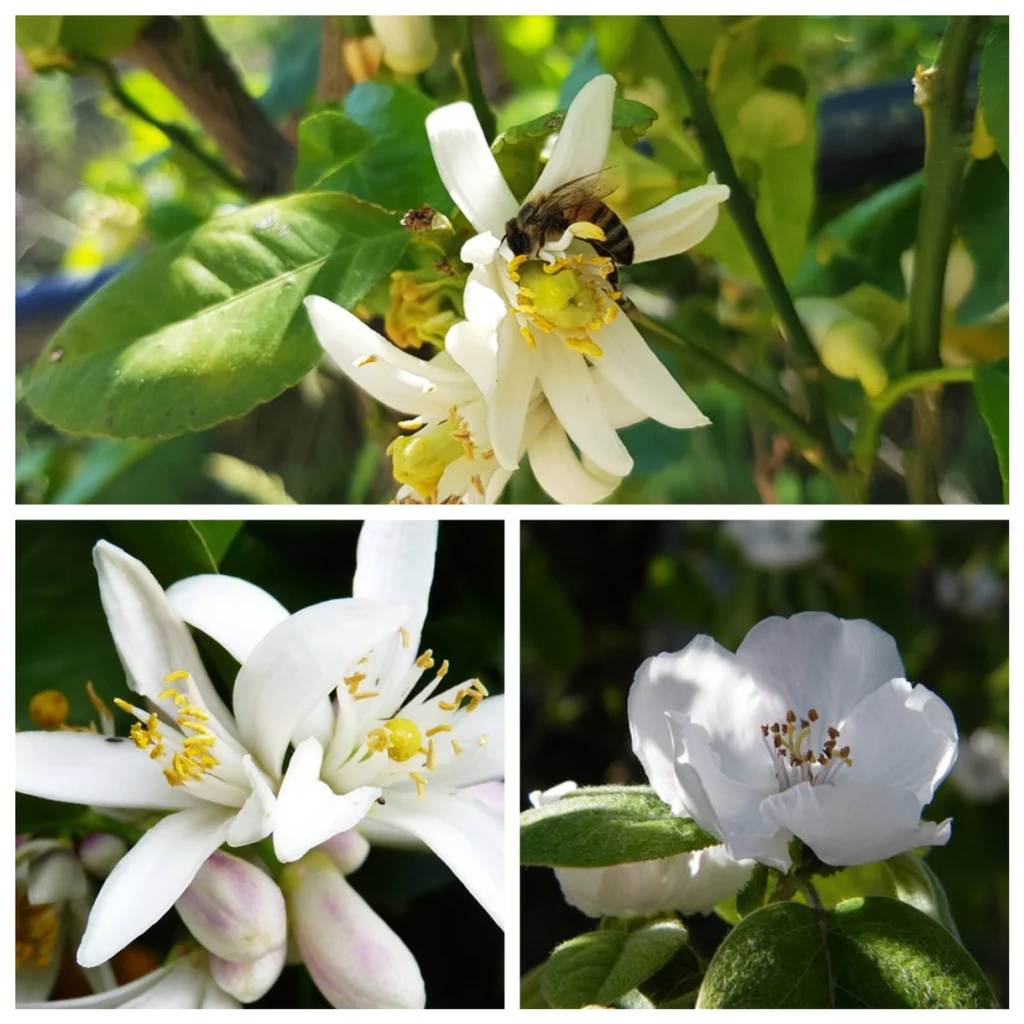
How Bergamot Oil Is Extracted
Traditional Methods: The Sponge Technique
Historically, bergamot oil was extracted using a slow, manual method called “sfumatura” or the sponge technique. This process dates back to the 18th century and involves:
- Hand-peeling the bergamot fruit to remove the zest.
- Pressing the peel against natural sponges (usually sea sponges) to absorb the oil.
- Squeezing the saturated sponges to collect the essential oil.
Though time-consuming, this method preserves the integrity of the oil and is still considered one of the purest ways to obtain it. Today, it’s used primarily for small-batch, artisanal production.
Modern Extraction Techniques
In modern industry, bergamot essential oil is typically obtained by cold expression, a mechanical process that gently presses the peel without using heat or solvents. The steps include:
- Washing and sorting the fruit.
- Mechanically rasping the outer peel to rupture oil glands.
- Centrifuging the emulsion of oil and water to separate the pure essential oil.
This technique is faster, scalable, and widely used to meet the global demand for bergamot oil—especially in the fragrance and food industries. Importantly, cold pressing helps preserve the delicate top notes that are essential for its aromatic profile.
Discover Bergamot in Calabria
Calabria, Italy’s southernmost region, is renowned for its stunning coastal beauty, epitomized by the charming city of Tropea and its nearby pristine beaches, Grotticelle and Spiaggia di Caminia. Tropea, perched majestically on a cliff overlooking the Tyrrhenian Sea, is celebrated for its historic architecture, including the iconic Santa Maria dell’Isola, and its vibrant local culture. Just a short drive from Tropea, Grotticelle Beach is famed for its crystal-clear waters and striking white sand, offering an idyllic setting for swimming and snorkeling.
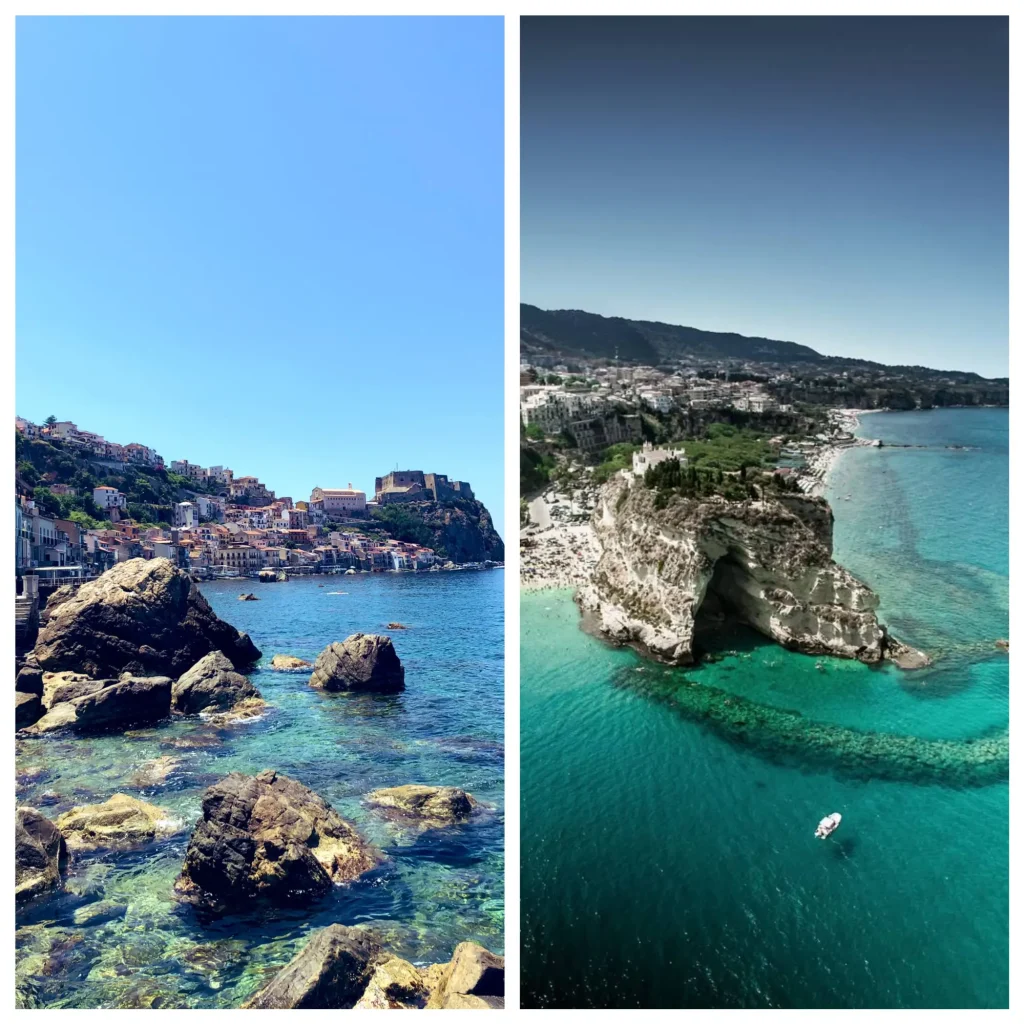
Similarly, Spiaggia di Caminia, located near Staletti, captivates with its serene atmosphere, golden sands, and tranquil waters, providing a more secluded escape. Together, these coastal gems highlight Calabria’s natural splendor and rich cultural heritage, making it a must-visit destination for those seeking both relaxation and exploration.
What makes Calabrian bergamot different from other citrus fruits?
Calabrian bergamot (Citrus bergamia) is unique because it only grows in a small coastal area of southern Italy, where the microclimate between the Ionian and Tyrrhenian seas enhances its aromatic profile. Its essential oil is more complex and refined than other citrus fruits, making it highly valued in perfumery and wellness.
Is bergamot the same as regular bergamot orange or bitter orange?
No. While they are related, Citrus bergamia is a distinct species. It’s not the same as bitter orange (Citrus aurantium) or the bergamot herb used in teas like Earl Grey. Calabrian bergamot refers specifically to the citrus fruit cultivated in southern Italy for its high-quality essential oil.
Can you use bergamot oil on your skin?
Yes—but with caution. Pure bergamot oil contains bergapten, a compound that can cause phototoxic reactions when exposed to sunlight. Look for bergapten-free (FCF) or IFRA-compliant formulations if applying topically, and always dilute it with a carrier oil.
Is bergamot oil safe to ingest?
Only food-grade bergamot extracts are safe to consume and should be used in small amounts. Citrus flavor in Earl Grey tea, for example, is highly diluted. Never ingest pure essential oil unless it is specifically labeled for internal use and recommended by a health professional.
Why is bergamot used in perfumes?
The extract oil is considered a top note in perfumery due to its fresh, uplifting aroma. It balances floral and spicy scents and is a core ingredient in classic colognes, including the original Eau de Cologne from 18th-century Germany.
What are the health benefits of bergamot?
Studies suggest that this citrus fruit extract may help lower cholesterol, reduce anxiety, and provide antioxidant support. However, most benefits are associated with standardized extracts, not essential oil alone. Always consult your doctor before using it therapeutically.
Thank you for taking the time to explore the fascinating world of bergamot and its significance in Calabria. We hope this article has offered you valuable insights into this unique citrus fruit and its diverse applications. For more captivating stories and discoveries about the Mediterranean region, we invite you to continue exploring our website. There’s always more to uncover about the rich cultures, landscapes, and traditions that make this part of the world so enchanting.

Bibliography
Regione Calabria. (n.d.). Retrieved from https://www.regione.calabria.it/
Turismo Calabria. (n.d.). Retrieved from https://www.turiscalabria.it/
Verified Market Reports. (2024). Global Bergamot Essential Oil Market Research Report. Market value: USD 11.23 billion in 2023, projected to reach USD 23.40 billion by 2031. Retrieved from https://www.verifiedmarketreports.com/product/bergamot-essential-oil-market/
Data Horizzon Research. (2024). Earl Grey Tea Market Size, Trends, Growth & Analysis Report – 2033. Market value: $685.4 million in 2024, anticipated to reach $1,124.7 million by 2033. Retrieved from https://datahorizzonresearch.com/earl-grey-tea-market-54628
Expert Market Research. (2024). Global Earl Grey Tea Market Report and Forecast 2024-2032. Growing at a CAGR of 3.5% during the forecast period. Retrieved from https://www.expertmarketresearch.com/reports/earl-grey-tea-market
Bergamot Essential Oil: Botanical Profile and Uses. (2021). Journal of Essential Oil Research, 33(2), 105-117.
The Botany of Citrus and its Cultivation. (2019). Horticultural Science, 54(4), 678-689.
Medicinal Plants of Calabria: Traditional Uses and Modern Research. (2018). Italian Journal of Botany, 50(1), 45-56.

